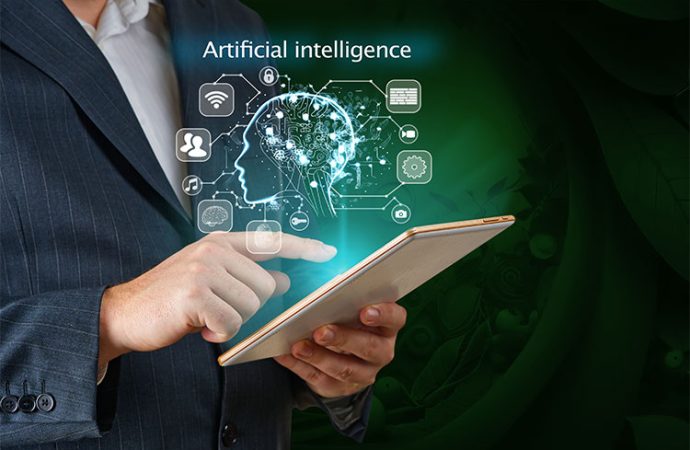Author Recent Posts Zartaj Chaudhary Latest posts by Zartaj Chaudhary (see all) Pakistan’s Energy Dilemma: Importing Oil and Gas from Central Asia and Iran – September 15, 2023 Examining the Risks of Artificial Intelligence to Human Security – September 7, 2023 Impacts of Urban Flooding on Development Projects in Pakistan – August 25, 2023
The rapid expansion of artificial intelligence brings forth multifaceted security risks, encompassing cyber vulnerabilities, economic implications, and ethical challenges. In an era characterized by rapid technological advancements, the relationship between artificial intelligence (AI) and human security has sparked a debate. The rapid growth of AI has created a complex perspective on potential risks that go beyond traditional limitations in the realm of human security. AI’s integration into a variety of sectors, including healthcare, banking, transportation, and communication, brings forth several possibilities along with many challenges that have broad repercussions. In this digitalized world, questions concerning the security of personal information, the possibility of cyber-attacks, and the ethical issues surrounding AI’s decision-making abilities are raised as AI-driven technologies continue to become part of our daily lives.
Human security comprises the protection of people’s health, dignity, and fundamental rights. It goes beyond traditional security conceptions by addressing a wide range of dangers such as economic inequities, environmental difficulties, and social injustices. However, the growing integration of AI into various parts of society presents new dimensions of risk to human security. AI can improve human security through advanced risk assessment and response mechanisms, such as AI-driven natural disaster early warning systems. However, AI poses risks by invading privacy, strengthening biases that might lead to discriminatory outcomes, and changing labor markets, which can worsen socioeconomic vulnerabilities.
In contrast to the developed global powers, the field of artificial intelligence introduces a complex set of security dangers that have a greater impact on third-world nations like Pakistan. While the rapid development of AI technologies presents transformative benefits, it also raises worries that could endanger both individual and societal security. Developing countries often lack the infrastructure, regulatory frameworks, and qualified workforce required to effectively manage AI’s threats, in contrast to developed nations, which usually possess the expertise and resources needed to address AI-related difficulties. Misinformation and propaganda spread by AI systems have the potential to amplify societal differences and impact public opinion, compromising political stability and social unity. Additionally, when AI is incorporated into crucial infrastructure, cyber-attack vulnerabilities grow, endangering both national security and the stability of the economy. Deep fakes effectively spread false information using easily accessible AI techniques, as evidenced by the spread of AI-generated photos of Imran Khan following his arrest. These AI-generated disinformation campaigns also actively target and victimize people on the political front.
Artificial intelligence (AI) has been incorporated into weapons, ushering in a new era of security dangers that directly affect human lives. Using AI algorithms to make split-second judgments, autonomous weapon systems raise questions about accountability and the possibility of unexpected damage. The primary risk posed by autonomous weaponry is that it can make decisions and even formulate strategies without human input. For the entire human race, it is gravely concerning that it might outsmart us, seize control of the networked weapon systems, and go wild while following its objectives for wreaking havoc. Furthermore, Due to their low production costs and ease of usage, they may potentially fall into the hands of non-state actors who may use them to cause significant harm while staying anonymous. To address the moral, legal, and humanitarian repercussions of fully autonomous weapon systems, a coalition of non-governmental organizations (NGOs) and concerned citizens launched the “Campaign to Stop Killer Robots” in 2013. It emphasizes the risks associated with AI-powered autonomous weapons and the potential damage such weapons could do to human security by making fatal decisions for humanity.
The consequences of AI-driven technologies on the workforce and economy are similar to a double-edged sword. Rapid automation of ordinary tasks and processes poses a threat to eliminating jobs in many industries, raising the possibility of widespread unemployment and economic instability. The potential displacement of workers due to AI adoption could create a scenario where a minority controls production and enjoys amplified productivity gains, leaving the majority struggling with unemployment. Although AI has the potential to be transformational, its implementation requires careful consideration of its economic, social, and ethical implications to ensure that its advantages do not jeopardize human financial security. Ali Baba, a Chinese firm, declared in 2023 that its new self-driving delivery service would be powered by AI. Although the service is currently in trial, it could eventually take on the role of human delivery personnel. The release of ChatGPT in November last year gave tough competition to Content writers, resulting in companies laying off many writers.
In the field of healthcare, artificial intelligence (AI) poses an intricate series of threats to patient safety. While AI has the potential to revolutionize medical diagnosis, treatment, and research, there are also serious worries about its application. Healthcare organizations are more vulnerable to cyber-attacks and unauthorized access as a result of increased data privacy and security vulnerabilities brought on by the processing of massive quantities of sensitive patient data by AI systems. Patient safety may be jeopardized by the possibility of AI algorithms incorrectly diagnosing illnesses or suggesting harmful therapies. In the 2018 Singapore Health Data Breach, a cyber-attack on the public health system led to the breach of 1.5 million individuals’ personal information, including the Prime Minister. The intrusion was carried out by the attacker using cutting-edge techniques like AI and machine learning to exploit vulnerabilities.
The complex relationship between technical development and human security has emerged as a key problem in the rapidly growing field of artificial intelligence (AI). While AI promises to revolutionize many industries, it also brings up numerous concerns that must be taken seriously. From AI-driven cyberattacks to the spread of misinformation and security breaches, the threats are diverse and alarming. To successfully navigate this environment, strong data protection measures, cyber security standards, and ethical AI norms must be established globally. To fully realize the potential of AI while maintaining human security, innovation must be balanced with the protection of human rights. Even though Pakistan is rather slow in the Artificial Intelligence race, it needs to formulate policies and legal frameworks for the transparent use of Artificial Intelligence.
- Pakistan’s Energy Dilemma: Importing Oil and Gas from Central Asia and Iran - September 15, 2023
- Examining the Risks of Artificial Intelligence to Human Security - September 7, 2023
- Impacts of Urban Flooding on Development Projects in Pakistan - August 25, 2023






















Leave a Comment
Your email address will not be published. Required fields are marked with *